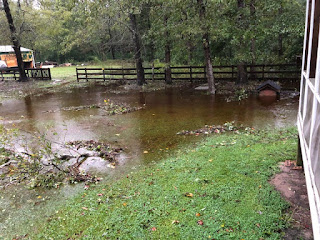For the most part I was able to forget that cancer is part of my life during this 2018 holiday season. Unfortunately, I still had to go to infusion on December 22rd, so I could not NOT think about it on that day. As I sat in “the chair”, I listened to a podcast and decided then I would share it here.
Untruths bandied about in our society capturing the attention of intelligent or educated individuals bother me. One particular cringe-worthy statement in the cancer community is “Sugar Feeds Cancer”. These three words are truthful, but someone thinking that giving up sodas and sugar in your coffee will stop cancer is a failure to understand basic cellular and food science. Giving up all sugar is nutritionally inadvisable.
Here is where I hand-off the science behind sugar and our bodies to Julie Langford, thecancerdietitian, who is educated in the field of nutrition. One step of her education landed her at UNC-CH where I receive treatment. I was surprised to learn she now lives in a city in North Carolina close to where I grew up. I think you will find her podcast about sugar and cancer easy to understand and wonderfully educational. She is dedicated to dispelling the myths in our culture concerning nutrition. I am a fan.
Before I leave you, I want you to keep these things in mind:
1. All cells need fuel, healthy and abnormal.
2. Insulin from our pancreas opens the door for glucose to enter a cell.
3. Glucose (sugar) is fuel for our cells. Sugar comes in different forms. Simple sugars are: glucose, dextrose, galactose, sucrose (in the body as fructose and glucose). More complex include: fructose, maltose, lactose.
4. Carbohydrates are made of simple and complex sugars along with starches and fiber. Some carbohydrates have nutrients (fruits, veggies, grains); plain sugar—a simple carbohydrate—does not.
5. Our cells cannot pick and chose which sugars to use.
6. If you eliminate glucose, the body will have to work extra hard to make the glucose that it needs to function. If no glucose, the body will break down proteins from muscle.
7. Proteins are made of amino acids. Amino acids can be broken down into glucose for use by the body when necessary.
8. If a person does not get enough nutrients, the immune system will be compromised and cannot protect the body from bad bacteria and viruses.
Hope you enjoy her Podcast. The Cancer Dietitian
And, one more thing since it is December 31st, the last day of 2018 . . .
Happy New Year Everyone!!
 |
| bing.com |
Here is where I hand-off the science behind sugar and our bodies to Julie Langford, thecancerdietitian, who is educated in the field of nutrition. One step of her education landed her at UNC-CH where I receive treatment. I was surprised to learn she now lives in a city in North Carolina close to where I grew up. I think you will find her podcast about sugar and cancer easy to understand and wonderfully educational. She is dedicated to dispelling the myths in our culture concerning nutrition. I am a fan.
Before I leave you, I want you to keep these things in mind:
1. All cells need fuel, healthy and abnormal.
2. Insulin from our pancreas opens the door for glucose to enter a cell.
3. Glucose (sugar) is fuel for our cells. Sugar comes in different forms. Simple sugars are: glucose, dextrose, galactose, sucrose (in the body as fructose and glucose). More complex include: fructose, maltose, lactose.
4. Carbohydrates are made of simple and complex sugars along with starches and fiber. Some carbohydrates have nutrients (fruits, veggies, grains); plain sugar—a simple carbohydrate—does not.
5. Our cells cannot pick and chose which sugars to use.
6. If you eliminate glucose, the body will have to work extra hard to make the glucose that it needs to function. If no glucose, the body will break down proteins from muscle.
7. Proteins are made of amino acids. Amino acids can be broken down into glucose for use by the body when necessary.
8. If a person does not get enough nutrients, the immune system will be compromised and cannot protect the body from bad bacteria and viruses.
Hope you enjoy her Podcast. The Cancer Dietitian
And, one more thing since it is December 31st, the last day of 2018 . . .
Happy New Year Everyone!!
















